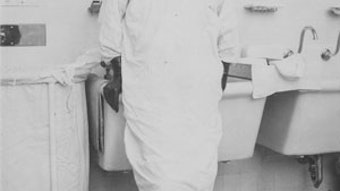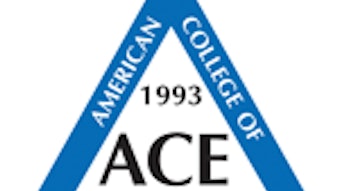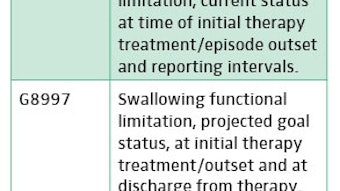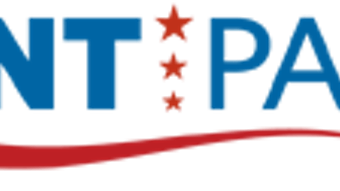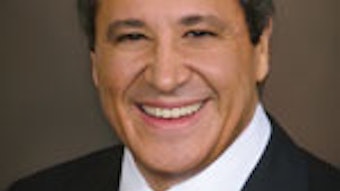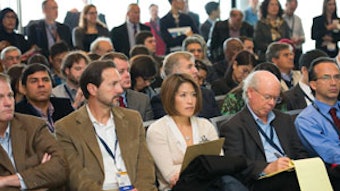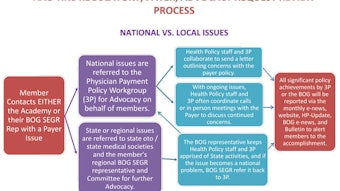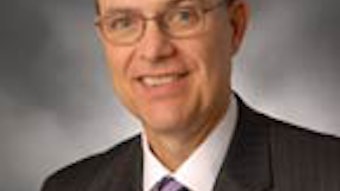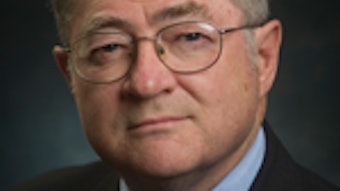Is PSQI Vulnerable?
Rahul K. Shah, MD George Washington University School of Medicine Children’s National Medical Center, Washington, DC Of course this is a rhetorical question—the modern patient safety and quality improvement, following the clarion call from the Institute of Medicine, is based on robust data, methodology, and outcomes. As such, it was an absolute surprise to many involved in PSQI (Patient Safety and Quality Improvement) research and initiatives that there was fraud and deceit amongst us. I will try to summarize what is reported in the lay press about Dr. Charles Denham, MD, who at the time of a Justice Department settlement co-chaired a prominent committee, the NQF Safe Practices Committee, at the National Quality Forum. Please research this yourself to obtain the most accurate information. As members may recall, the Academy has physician and staff representation at the major quality organizations and associations, including (but not limited to) the Ambulatory Quality Alliance (AQA), National Quality Forum (NQF), AMA’s Physician Consortium for Performance Improvement (PCPI), and the Surgical Quality Alliance (SQA). It is a prescient decision for the Academy to be participating and involved in these organizations for more than a half-decade as we are well represented in the national landscape and able to adjust to changing influence. For example, if we were to plot the influence of these societies during the past many years, we would see evolving influence based on national priorities. Hence, the allegations of fraud of Dr. Denham hit close to home for our membership, as we are participants in the NQF. The government alleges, while Dr. Denham co-chaired the NQF Safe Practices Committee, that a company he owned was provided contracts by CareFusion to promote its product, ChloraPrep. The product is used for surgical antisepsis, however the company was promoting its use off-label, which is not allowed. The allegation from the Justice Department was that the committee that Dr. Denham co-chaired was subjected to his influenced and that he personnally profited from payments from CareFusion. CareFusion was fined $40 million by the Justice Department. The story and the accompanying blog posts Wachter’s World are worth reading; indeed my co-chair of the AAO-HNS/F PSQI committee, David Roberson, MD, even opined on the post! My point being that this downfall, the first of such impact in the PSQI movement, has brought out many of our most respected safety experts to voice their sentiments. I do not personally know Dr. Denham, but have heard him speak a few times. He is a gifted messenger and certainly a patient advocate. Nevertheless, the point of the column this month is to demonstrate that even a field as purely motivated as patient safety and quality improvement is susceptible to fraudulent behavior. We must remain vigilant as Academy members and ensure that just because a group with good motives that is led by experts presents a claim or action does not a priori and without evidence make that claim substantiated. Academy member and journal editor, Richard M. Rosenfeld, MD, MPH, has done a tremendous job of asking the difficult questions about statistics, correlations, and causations when I have seen him at scientific meetings. This level of scrutiny is what we as individual Academy members can do with regards to statements from quality and safety organizations. We must not simply rollover and accept these mandates—the onus is on us as practicing providers to see the data and understand the rational for such measures. I have seen our membership in action and am confident that we always do push for the data and transparency. In summary, the modern patient safety and quality improvement movement since the 2000s is not a fraud—the data is robust, medicine is embracing proven quality and scientific methodologies, and the outcomes of actual lives saved is exciting. However—caveat emptor: If a product sounds too good to be true, if an initiative has results that are not rational, and if someone seems conflicted—then double-check, as you may be right! If you can spare some time, these articles outlined below reinforce the absolute need for every organization engaging in these types of activities to have solid disclosure policies addressing of conflicts of interest. References http://online.wsj.com/article/BT-CO-20140109-709237.html, accessed March 9, 2014. http://community.the-hospitalist.org/2014/01/30/patient-safetys-first-scandal-the-sad-case-of-chuck-denham-carefusion-and-the-nqf/, accessed March 9, 2014. http://www.forbes.com/sites/michaelmillenson/2014/02/14/the-money-the-md-and-a-12-million-patient-safety-scandal/, accessed March 3, 2014. Editor’s Note: Please read Dr. Denham’s statement that can be found within the Wachter’s World article (http://community.the-hospitalist.org/2014/01/30/). Specifically it appears in the commentaries from a February 22, 2014, 7:41 pm reader. We encourage members to write us with any topic of interest and we will try to research and discuss the issue. Members’ names are published only after they have been contacted directly by Academy staff and have given consent to the use of their names. Please email the Academy at qualityimprovement@entnet.org to engage us in a patient safety and quality discussion that is pertinent to your practice.

George Washington University School of Medicine
Children’s National Medical Center, Washington, DC
Of course this is a rhetorical question—the modern patient safety and quality improvement, following the clarion call from the Institute of Medicine, is based on robust data, methodology, and outcomes. As such, it was an absolute surprise to many involved in PSQI (Patient Safety and Quality Improvement) research and initiatives that there was fraud and deceit amongst us.
I will try to summarize what is reported in the lay press about Dr. Charles Denham, MD, who at the time of a Justice Department settlement co-chaired a prominent committee, the NQF Safe Practices Committee, at the National Quality Forum. Please research this yourself to obtain the most accurate information.
As members may recall, the Academy has physician and staff representation at the major quality organizations and associations, including (but not limited to) the Ambulatory Quality Alliance (AQA), National Quality Forum (NQF), AMA’s Physician Consortium for Performance Improvement (PCPI), and the Surgical Quality Alliance (SQA). It is a prescient decision for the Academy to be participating and involved in these organizations for more than a half-decade as we are well represented in the national landscape and able to adjust to changing influence. For example, if we were to plot the influence of these societies during the past many years, we would see evolving influence based on national priorities. Hence, the allegations of fraud of Dr. Denham hit close to home for our membership, as we are participants in the NQF.
The government alleges, while Dr. Denham co-chaired the NQF Safe Practices Committee, that a company he owned was provided contracts by CareFusion to promote its product, ChloraPrep. The product is used for surgical antisepsis, however the company was promoting its use off-label, which is not allowed. The allegation from the Justice Department was that the committee that Dr. Denham co-chaired was subjected to his influenced and that he personnally profited from payments from CareFusion. CareFusion was fined $40 million by the Justice Department. The story and the accompanying blog posts Wachter’s World are worth reading; indeed my co-chair of the AAO-HNS/F PSQI committee, David Roberson, MD, even opined on the post! My point being that this downfall, the first of such impact in the PSQI movement, has brought out many of our most respected safety experts to voice their sentiments.
I do not personally know Dr. Denham, but have heard him speak a few times. He is a gifted messenger and certainly a patient advocate. Nevertheless, the point of the column this month is to demonstrate that even a field as purely motivated as patient safety and quality improvement is susceptible to fraudulent behavior.
We must remain vigilant as Academy members and ensure that just because a group with good motives that is led by experts presents a claim or action does not a priori and without evidence make that claim substantiated. Academy member and journal editor, Richard M. Rosenfeld, MD, MPH, has done a tremendous job of asking the difficult questions about statistics, correlations, and causations when I have seen him at scientific meetings. This level of scrutiny is what we as individual Academy members can do with regards to statements from quality and safety organizations. We must not simply rollover and accept these mandates—the onus is on us as practicing providers to see the data and understand the rational for such measures. I have seen our membership in action and am confident that we always do push for the data and transparency.
In summary, the modern patient safety and quality improvement movement since the 2000s is not a fraud—the data is robust, medicine is embracing proven quality and scientific methodologies, and the outcomes of actual lives saved is exciting. However—caveat emptor: If a product sounds too good to be true, if an initiative has results that are not rational, and if someone seems conflicted—then double-check, as you may be right! If you can spare some time, these articles outlined below reinforce the absolute need for every organization engaging in these types of activities to have solid disclosure policies addressing of conflicts of interest.
References
http://online.wsj.com/article/BT-CO-20140109-709237.html, accessed March 9, 2014.
http://community.the-hospitalist.org/2014/01/30/patient-safetys-first-scandal-the-sad-case-of-chuck-denham-carefusion-and-the-nqf/, accessed March 9, 2014.
http://www.forbes.com/sites/michaelmillenson/2014/02/14/the-money-the-md-and-a-12-million-patient-safety-scandal/, accessed March 3, 2014.
Editor’s Note:
Please read Dr. Denham’s statement that can be found within the Wachter’s World article (http://community.the-hospitalist.org/2014/01/30/). Specifically it appears in the commentaries from a February 22, 2014, 7:41 pm reader.
We encourage members to write us with any topic of interest and we will try to research and discuss the issue. Members’ names are published only after they have been contacted directly by Academy staff and have given consent to the use of their names. Please email the Academy at qualityimprovement@entnet.org to engage us in a patient safety and quality discussion that is pertinent to your practice.
